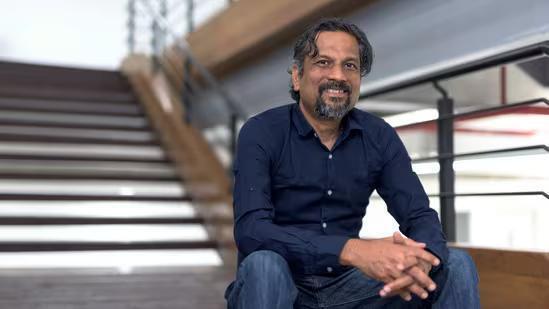
Did not have confidence: Vembu on Zoho shelving $700 mn chip plan
In a recent development, Zoho Founder Sridhar Vembu announced that the company has suspended its ambitious $700 million “semiconductor fab investment plan”. The news has sent shockwaves through the tech industry, with many wondering what led to this decision. In an exclusive interview, Vembu revealed that the company’s board decided to shelve the idea due to lack of confidence in the technology. In this blog post, we will delve into the story behind Zoho’s decision and what it means for the future of the company.
Zoho, a well-known Indian software company, had been planning to invest in a semiconductor fab, a facility that manufactures semiconductors, a crucial component in modern electronics. The plan was ambitious, with an estimated investment of $700 million, making it one of the largest investments in the Indian tech industry. The company had been working on the project for several years, and it was expected to create thousands of jobs and boost the local economy.
However, in a surprise move, Vembu announced that the company has decided to put the project on hold. When asked about the reason behind the decision, Vembu was candid, stating, “We did not have that confidence in the tech, so our board decided to shelve this idea for the time being.” He added, “We wanted to be absolutely sure of the technology path before we take taxpayer money.”
Vembu’s comments suggest that the company was not convinced about the viability of the technology used in the semiconductor fab. This lack of confidence led the board to decide to put the project on hold, rather than risking a significant investment that may not yield the desired returns.
The decision to shelve the project is a significant setback for Zoho, which had been touted as one of the most promising startups in the Indian tech industry. The company had been expanding rapidly, with a presence in over 150 countries, and the semiconductor fab project was seen as a key step in its growth strategy.
The shelving of the project also raises questions about the future of the Indian semiconductor industry. The country has been trying to establish itself as a major player in the global semiconductor market, and the Zoho project was seen as a significant step in this direction. The decision to put the project on hold may delay India’s plans to become a major player in the global semiconductor market.
Vembu’s comments also suggest that the company is cautious about investing in new technologies, especially those that require significant investments. This cautious approach may be a result of the company’s experience with previous investments, which may not have yielded the desired returns.
The decision to shelve the project may also have implications for the Indian government, which had been backing the project. The government had offered incentives and subsidies to Zoho to encourage it to invest in the project. The shelving of the project may raise questions about the government’s ability to attract foreign investment in the tech industry.
In conclusion, Zoho’s decision to shelve its $700 million semiconductor fab investment plan is a significant setback for the company and the Indian tech industry. The lack of confidence in the technology used in the semiconductor fab led the company to put the project on hold, rather than risking a significant investment. The decision may delay India’s plans to become a major player in the global semiconductor market, and it may raise questions about the government’s ability to attract foreign investment in the tech industry.






